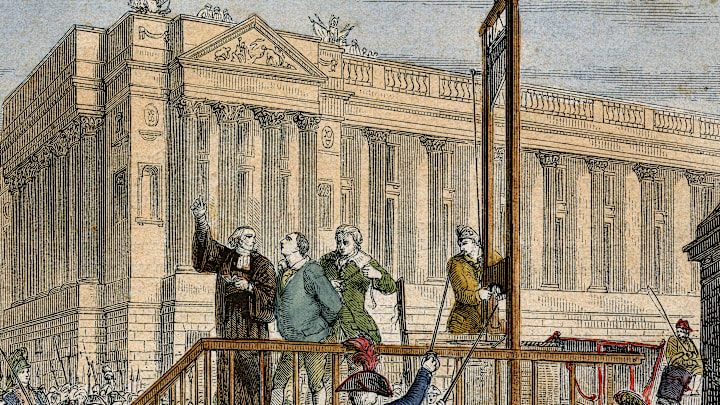
Louis XVI of France
"I die innocent of all the crimes of which I have been charged. I pardon those who brought about my death, and I pray that the blood you are about to shed may never be required of France…"
King Louis XVI inherited the throne from his grandfather, but he was ill-prepared to rule. Louis was not originally expected to be the king, but his father and two older brothers died before Louis XV, which jumped him up the line of succession. He was known as a scholarly young man, with a keen interest in exploration and engineering, passions which distracted him from the practical requirements of his position.
While this may not have been fatal at another time, Louis was a weak king during an age of revolutions. He and his family were captured by revolutionaries who abolished the monarchy, and they eventually put him on trial for high treason. His legal team argued that the trial itself was illegal and he had made the best decisions he could have, but he was still found guilty and sentenced to death.
Although attempts were made to block the execution, including Thomas Paine arguing Louis should be sent to the United States, Louis was executed by guillotine on January 21, 1793. He began a speech to the people but was cut off before he could finish. While there are a few different accounts of his last words, the general themes were concretely focused on his innocence and his hopes for France's future.

Marie Antoinette, Wife of King Louis XVI
"Excuse me, monsieur."
Marie Antoinette has become infamous throughout history for her overindulgence, throwing money at entertainment while the people of France starved. Yet, she has recently been redeemed in many interpretations, shown as a child in a foreign land, rather than a callous and indifferent ruler. Married to the French dauphin at age 14, Marie Antoinette faced a court and country that did not want her there.
She became Queen in 1774, and while her and Louis' rise to the throne was originally celebrated, public opinion quickly turned on Marie Antoinette for over-spending. She was imprisoned, along with her husband, and attempts were made on her life. Eventually, she was put on trial and sentenced to death.
Far from the character shown in revolutionary propaganda, Marie Antoinette was quiet and defeated by the time of her death. She had been wracked with grief after the death of her husband and the removal of her son, and it seemed as though her few remaining friends were doomed as well. She had no brave words or pleas of innocence in the end. Marie Antoinette apologized for stepping on the executioner's foot and died.
